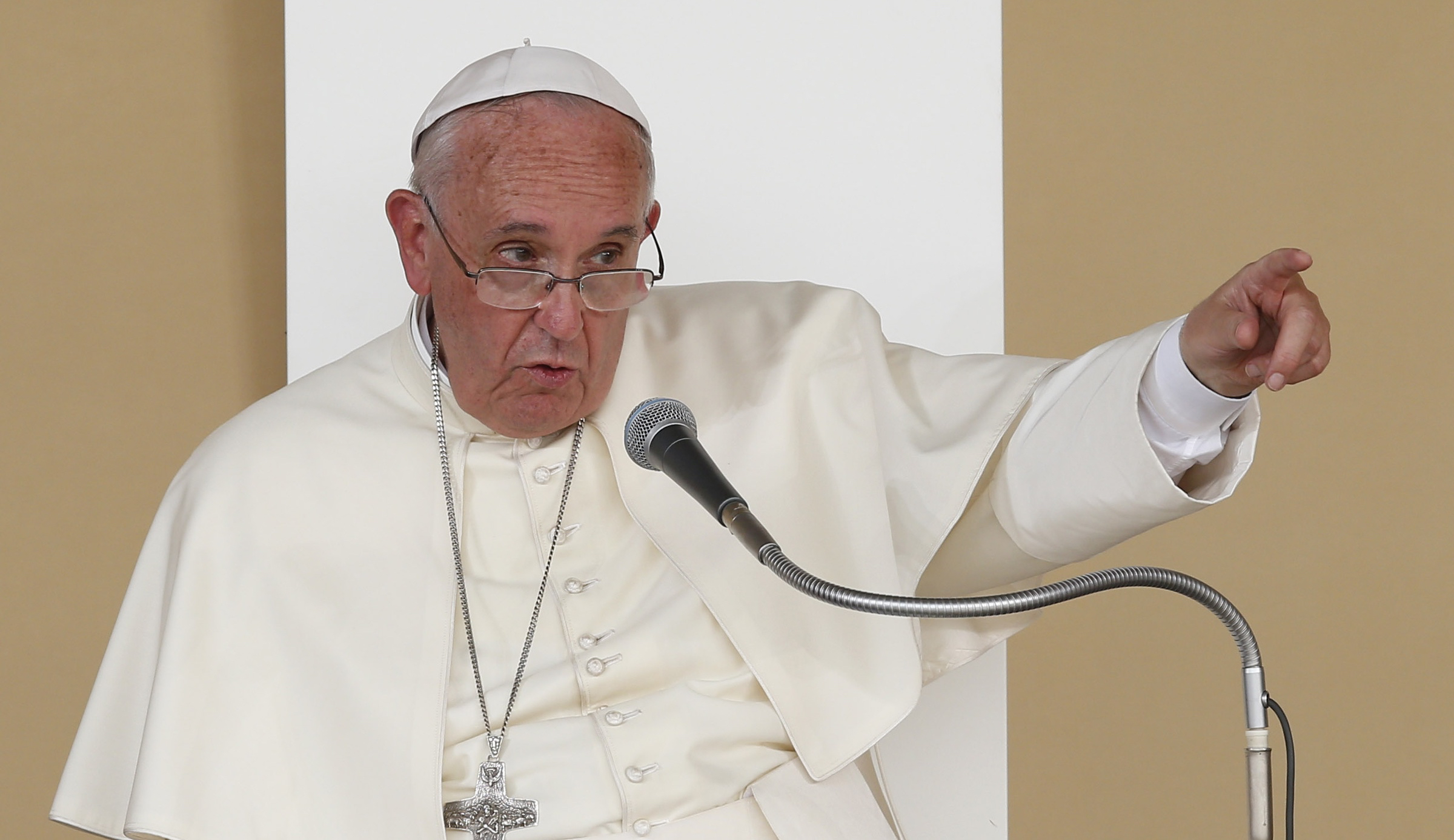Lost in the much of torrent of reaction and instant analysis following the recent release of Pope Francis’ encyclical “Laudato Si” was the hard kernel of universal truth that formed the encyclical’s main thesis.
It wasn’t about global warming or greenhouse gases or tree hugging or even, mainly, climate change, which was the topic on which most of the contrarians fixated and railed—many even before the encyclical was issued and the only information came from a very sketchy leak of the text.
It was about us. Specifically, it was about greed.
It was about, the pope wrote, how humankind has enthusiastically and disastrously embraced a “culture of consumerism, which prioritizes short-term gain and private interest.”
When people “become self-centered and self-enclosed, their greed increases. The emptier a person’s heart is, the more he or she needs things to buy, own and consume. It becomes almost impossible to accept the limits imposed by reality. In this horizon, a genuine sense of the common good also disappears. As these attitudes become more widespread, social norms are respected only to the extent that they do not clash with personal needs. So our concern cannot be limited merely to the threat of extreme weather events, but must also extend to the catastrophic consequences of social unrest. Obsession with a consumerist lifestyle, above all when few people are capable of maintaining it, can only lead to violence and mutual destruction.”
This is where Francis journeys out so much farther than other contemporary observers of environmental and climate issues. Where others might offer piecemeal solutions—ecological Band-Aids, if you will, that may divert some consequences for a time without solving the problem—the Holy Father names those consequences, but strikes at the root.
It is the drive to acquire, to feather our nests, to isolate our lives from inconvenient reality, to suspect and mistrust “the other” that inevitably leads to a lack of healthy concern for the physical world around us. It is simple greed, often disguised as enlightened self-interest, and not callous, volitional disregard than harms our environment, says the pope. How easily it can happen. How seductive such a life can be, turning ever inward when facing outward and engaging with the world of others seems so daunting. Too often when we see the enemy, he is us.
“If the present ecological crisis is one small sign of the ethical, cultural and spiritual crisis of modernity, we cannot presume to heal our relationship with nature and the environment without healing all fundamental human relationships,” writes Francis. “…A correct relationship with the created world demands that we not weaken this social dimension of openness to others, much less the transcendent dimension of our openness to the ‘Thou’ of God. Our relationship with the environment can never be isolated from our relationship with others and with God.”
What about climate change? The pope makes reference to that topic in only four of the encyclical’s 246 paragraphs.
“The focus of ‘Laudato Si’ is the human person,” writes William Patenaude in his analysis in The Catholic World Report. “The central thesis is that the fallen nature of the human heart and the resulting brokenness of human relations is the cause of the crises in our lives, families, nations, and now the life-sustaining ecosystems that form our common home.”
The encyclical is worth a full read.

